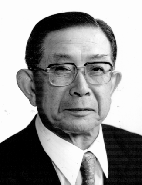
SAITO Hiroshi
Chairman
Board of Councilors
KEIDANREN
We hear recently a fair number of the National Diet members griping about the switch they agreed to make to the single-seat constituency system from the multi-seat district system. They have once tried intensely to enact the single-seat district system with such single-minded concentration that it was considered by some as almost akin to political reform itself, and when the new system was finally cleared through the Diet by their own hand as an outright majority, expectations rose high that a general election would be held any time soon. To this day, the election has yet to be held, however. Not only that, two of the coalition partners - the Social Democratic Party and the New Party Sakigake - are preoccupied with hanging onto office by dawdling over the election issue, while some of the Liberal Democratic Party members do appear to hope that the dissolution of the Lower House will take place after this fall. One is left with an impression that these lawmakers are quite negative in their attitude toward an early election. Admittedly, shepherding through the budget for fiscal 1996 may well be an inevitable process for ensuring economic recovery. However, it cannot be denied that any ploy to put off the election until after the fall this year or, in an extreme scenario, until the terms of office of the current Lower House members expire in the summer of next year falls little short of a manifestation of their undue pursuit of party politics and party interests first and foremost, and their unwillingness to seek an all-important mandate from the people.
The members of the National Diet ought to earn our respect because they are the "elite" elected by popular vote. If the lawmakers are allowed to engage in the kind of politics not sufficiently persuasive to the people because of their procrastination on the holding of an election, such politics could hardly be called democratic.
Since the next general election will obviously be the first one under the revised electoral system, it is difficult to predict the outcome, let alone anticipate results satisfactory to both the electorate and the elected. Nevertheless, whatever the result but so long as it reflects the will of the people, the general election should go a long way in helping break out of the pent-up feeling of frustration that is enveloping our country. This is the reasoning behind our call for the earliest possible dissolution and election of the Lower House.